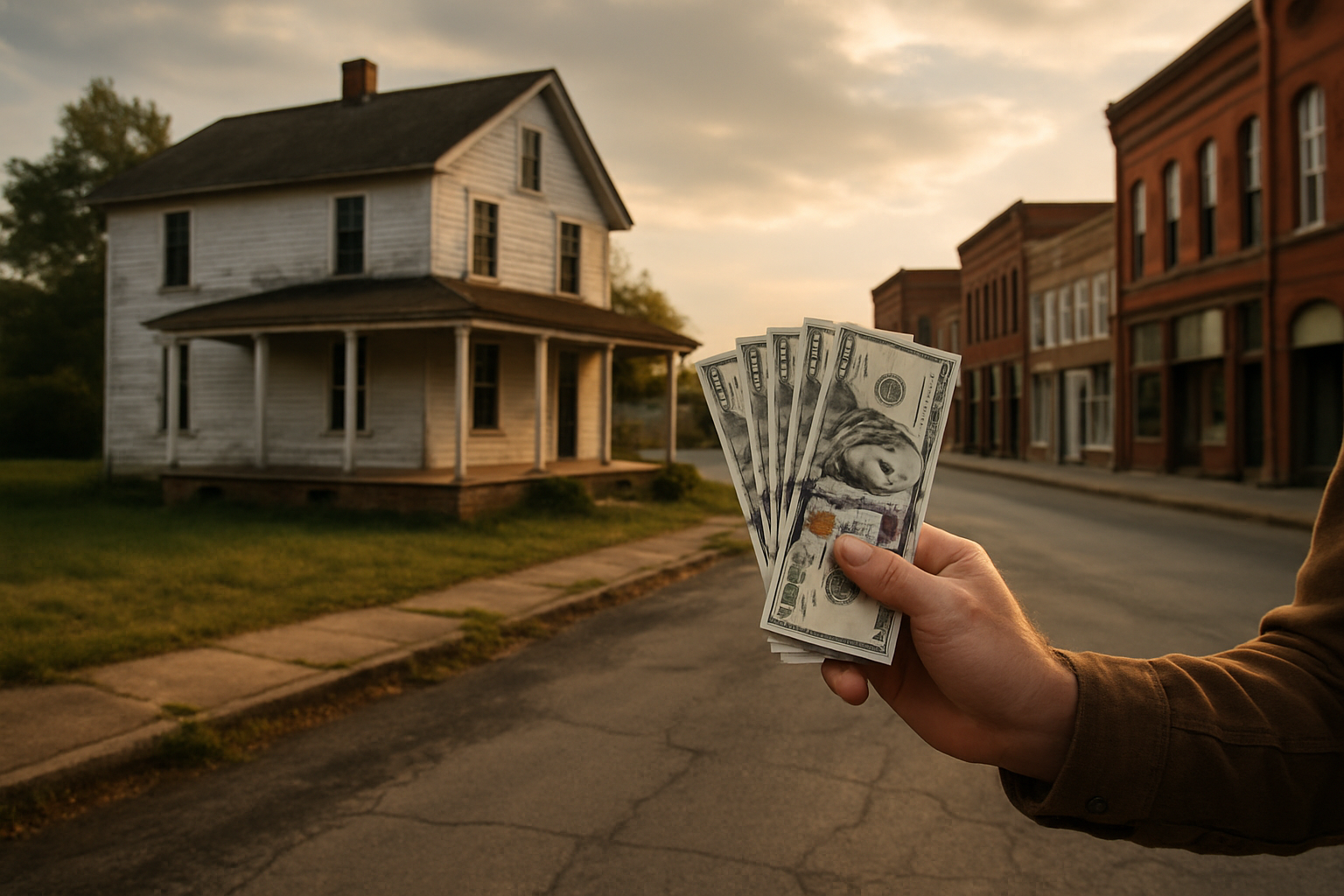Budget Homes in the U.S.
Affordable housing options under $10,000 is possible. Discover how some buyers are finding homes at surprisingly low prices. This article looks at what’s available, where to look, and what to expect when exploring ultra-budget property listings in today’s market.

Where can I find homes for under $10,000 in the USA?
While it may seem improbable, there are several avenues to explore when searching for homes priced under $10,000. These properties are typically found in rural areas, economically challenged regions, or through specific government programs. Some key places to look include:
-
Rural Revitalization Zones: Many small towns and rural communities offer extremely affordable housing to attract new residents and revitalize their areas.
-
Real Estate Marketplaces: Online platforms often list fixer-uppers and distressed properties at rock-bottom prices.
-
Government Listings: Agencies like HUD (Department of Housing and Urban Development) sometimes offer foreclosed homes at steep discounts.
-
Tax Lien and Foreclosure Sales: County auctions can yield incredibly low-priced properties, though they often come with additional complications.
What types of properties are available for under $10,000?
When exploring the market for homes under $10,000, it’s important to manage expectations. These properties are likely to fall into one or more of the following categories:
-
Fixer-Uppers: Homes in need of significant repairs or renovations.
-
Foreclosures: Properties repossessed by banks or government agencies due to non-payment.
-
Abandoned Homes: Houses left vacant and potentially deteriorating.
-
Mobile Homes: Particularly in rural areas, mobile homes can be found at very low prices.
-
Tiny Homes or Micro-Houses: Small, often prefabricated structures that offer basic living accommodations.
It’s crucial to understand that these properties may require substantial investments in repairs, renovations, or even basic utilities to make them livable.
How do tax lien and foreclosure sales work?
Tax lien and foreclosure sales can be excellent sources for finding extremely affordable properties. Here’s a brief overview of how they work:
Tax Lien Sales:
-
When property owners fail to pay their taxes, the local government may place a lien on the property.
-
These liens are then auctioned off to investors.
-
If the original owner doesn’t pay off the lien within a specified period, the investor can foreclose on the property.
Foreclosure Sales:
-
These occur when a homeowner defaults on their mortgage.
-
The lender repossesses the property and sells it to recoup their losses.
-
These sales can happen through public auctions or as bank-owned (REO) properties.
Both types of sales can offer properties at significantly reduced prices, but they often come with risks and require thorough due diligence.
What should I know about Rural Revitalization Zones?
Rural Revitalization Zones are areas designated by local or state governments to encourage population growth and economic development. These zones often offer incredibly affordable housing options to attract new residents. Key points to consider include:
-
Location: These zones are typically in rural or small-town settings, which may have limited job opportunities or amenities.
-
Incentives: Some areas offer additional perks like tax breaks or grants for home improvements.
-
Community Investment: By moving to these areas, you’re often expected to contribute to the local economy and community revitalization efforts.
-
Infrastructure: Be prepared for potentially limited access to services like high-speed internet or public transportation.
While the low cost of housing is attractive, it’s essential to consider the long-term implications of living in a rural area, especially if you’re accustomed to urban amenities.
What are the pros and cons of buying a fixer-upper on real estate marketplaces?
Real estate marketplaces often list fixer-uppers at extremely low prices, making them an attractive option for budget-conscious buyers. However, it’s important to weigh the advantages and disadvantages:
Pros:
-
Low initial purchase price
-
Potential for significant equity gains after renovations
-
Opportunity to customize the home to your preferences
-
Possible access to desirable locations at a fraction of the cost
Cons:
-
High renovation costs that could exceed the initial savings
-
Time-consuming and potentially stressful renovation process
-
Risk of unforeseen issues and hidden costs
-
Difficulty in obtaining traditional financing for severely distressed properties
Before purchasing a fixer-upper, it’s crucial to have a realistic assessment of the renovation costs and your own DIY capabilities.
How can I find and purchase HUD homes and other government listings?
HUD homes and other government-owned properties can offer excellent value for budget-conscious buyers. Here’s how to navigate this process:
-
Search HUD’s official website (hudhomestore.gov) for listings in your desired area.
-
Check other government agencies like the VA, USDA, and Freddie Mac for their property listings.
-
Work with a HUD-approved real estate agent who can guide you through the bidding process.
-
Be prepared to act quickly, as these properties can sell fast.
-
Understand that many government-owned homes are sold “as-is,” meaning you’ll be responsible for any repairs or renovations.
When considering government listings, it’s essential to thoroughly inspect the property and understand any restrictions or requirements that may come with the purchase.
| Property Type | Typical Price Range | Potential Additional Costs |
|---|---|---|
| Rural Revitalization Zone Home | $5,000 - $10,000 | $10,000 - $30,000 (renovations) |
| Tax Lien Property | $1,000 - $5,000 | $5,000 - $20,000 (liens, back taxes) |
| Foreclosure | $5,000 - $10,000 | $15,000 - $50,000 (repairs, legal fees) |
| Fixer-Upper | $7,000 - $10,000 | $20,000 - $100,000 (renovations) |
| HUD Home | $8,000 - $10,000 | $10,000 - $30,000 (repairs, closing costs) |
Prices, rates, or cost estimates mentioned in this article are based on the latest available information but may change over time. Independent research is advised before making financial decisions.
While the prospect of purchasing a home for under $10,000 is enticing, it’s crucial to approach these opportunities with caution and thorough research. Many of these properties come with significant challenges, from extensive renovations to legal complications. However, for those willing to invest time, effort, and additional resources, these ultra-budget homes can provide a unique opportunity to enter the housing market or expand a real estate portfolio. Always consult with local real estate professionals, conduct thorough inspections, and understand the full scope of any additional costs before committing to such a purchase.




